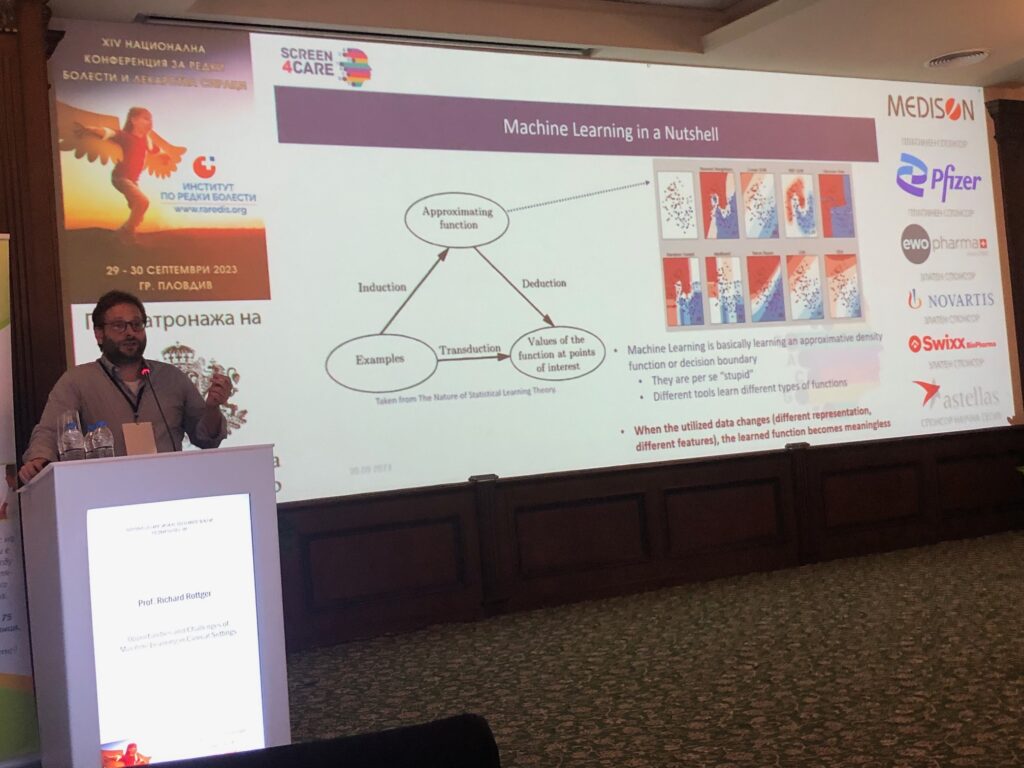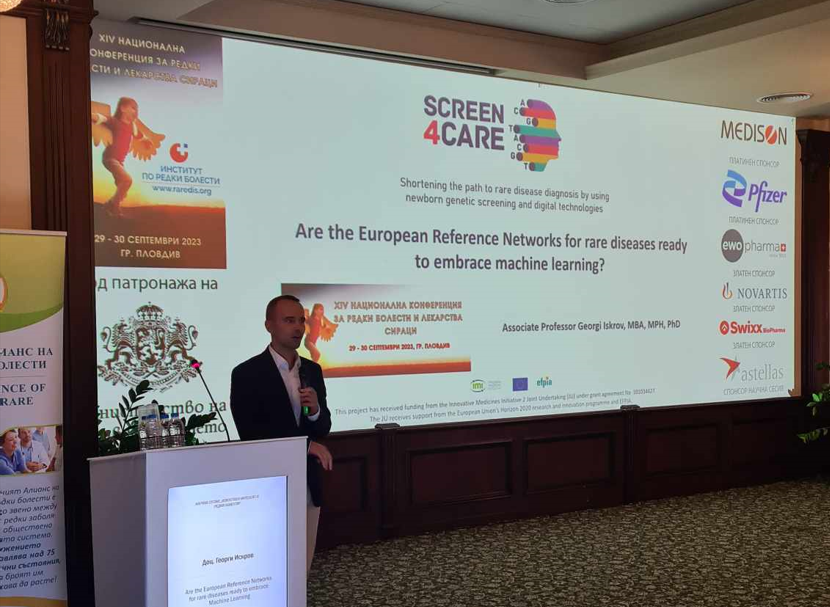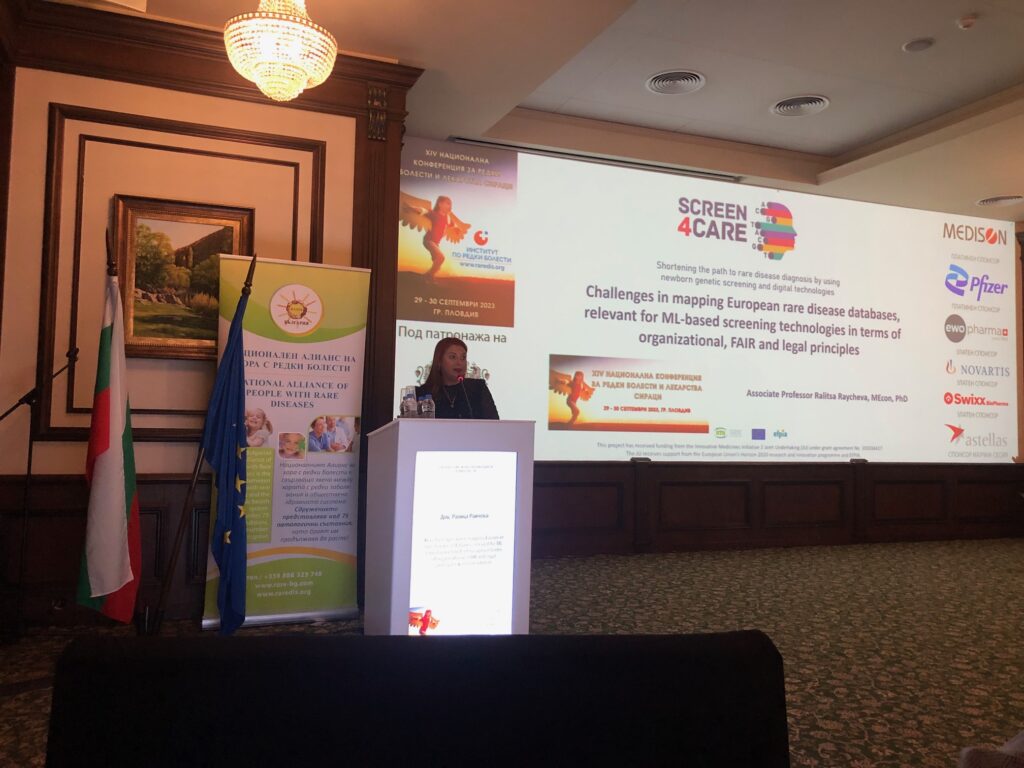Assoc. Prof. Georgi Iskrov, Assoc. Prof. Ralitsa Raicheva and Prof. Richard Rötger, as part of the Screen4Care project, which started in 2021, presented the first results of their studies during the XIV National Conference on Rare Diseases and Orphan Dugs – 30.09.2023. The main goal of Screen4Care project is to accelerate accurate diagnosis of people with rare diseases by implementing genetic screening in newborns and developing innovative digital solutions.

Prof. Richard Rötger is head of the Department of Mathematics and Computer Science at the University of Southern Denmark. Prof. Rötger mainly focuses on the development of efficient algorithms for the analysis of biological networks and large-scale biomedical datasets. His work focuses on unsupervised machine learning and integration of heterogeneous data sets. Prof. Rötger presented the challenges and opportunities for applying machine learning in clinical practice.

Georgi Iskrov is associate professor of healthcare economics at Medical University – Plovdiv. Since 2008, he has been part of the team of the Institute for Rare Diseases, where he participates in a number of national and European projects. Prof. Iskrov presented the results of a survey conducted among medical specialists working in European reference networks regarding their readiness to integrate machine-learned artificial intelligence in their practice.

Assoc. Prof. Raycheva has Master’s degree in Macroeconomics, PhD, scientific specialty “Healthcare Economics”. Associate Professor Raycheva presented the results of a study published in the international journal: Frontiers in Public Health (Impact factor: 5.2; Cite score: 3.8) Public Health Policy section. It focuses on the challenges when mapping European rare disease databases for screening technologies based on machine learning (ML) and artificial intelligence. You can read the published article here.
The Screen4Care EU-IMI project has received funding from the Innovative Medicines Initiative 2 Joint Undertaking (JU) under grant agreement No 101034427. The JU receives support from the European Union’s Horizon 2020 research and innovation programme and EFPIA.

